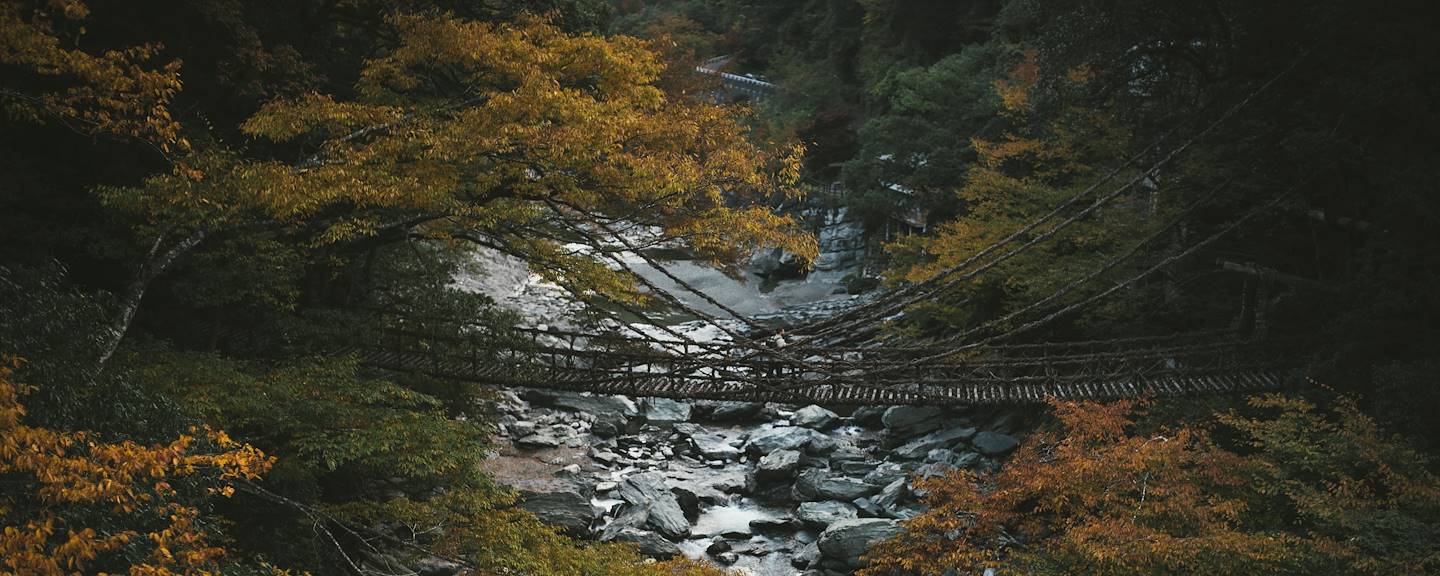
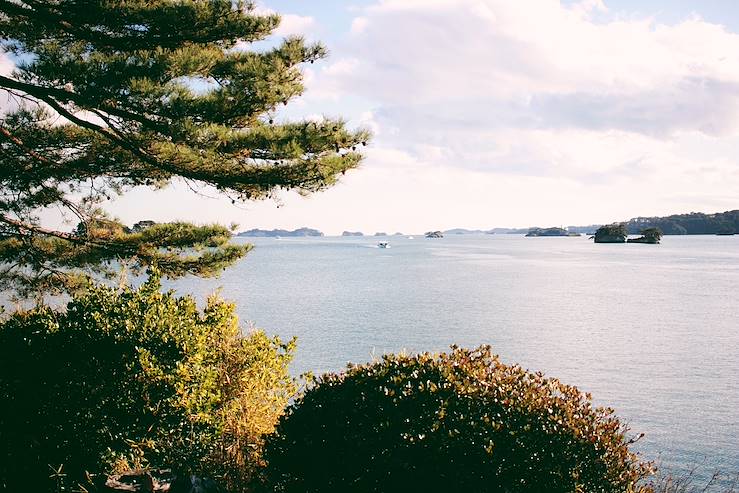
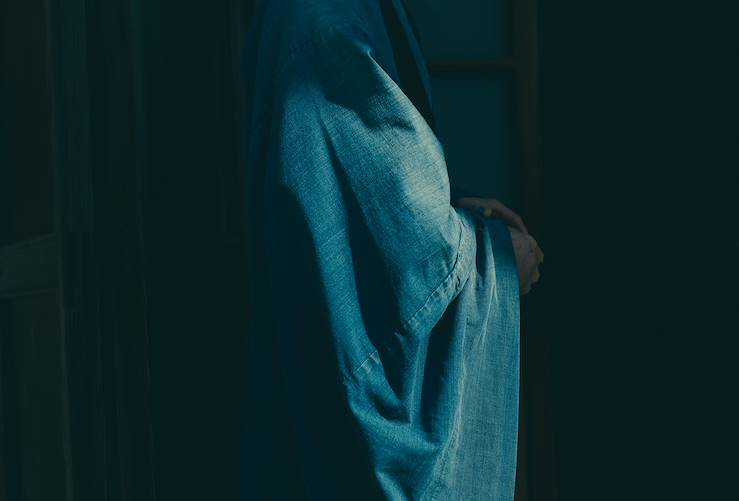
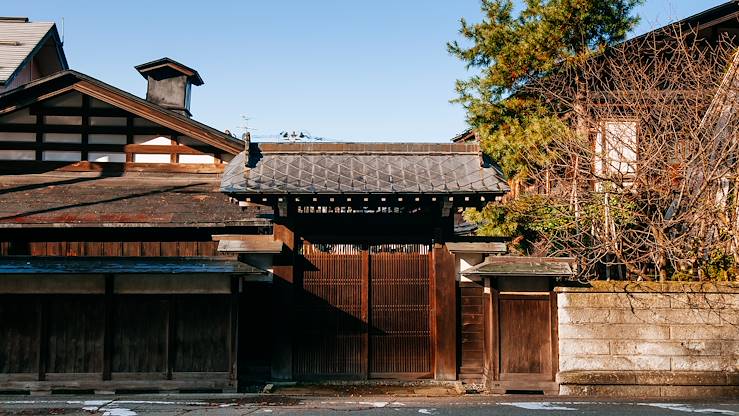
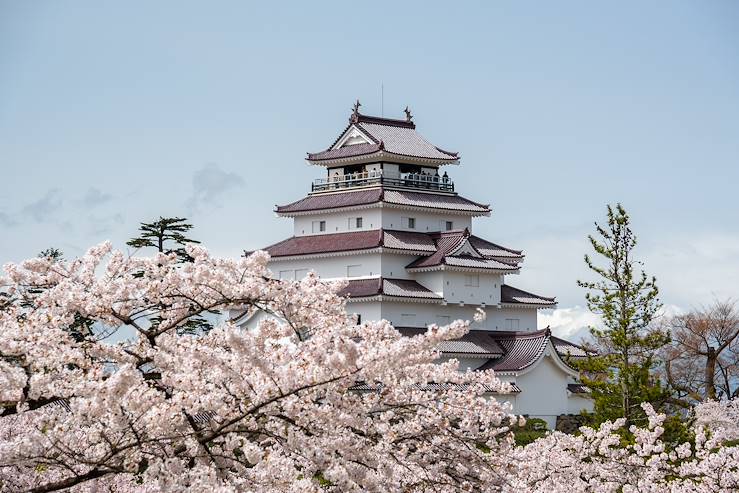
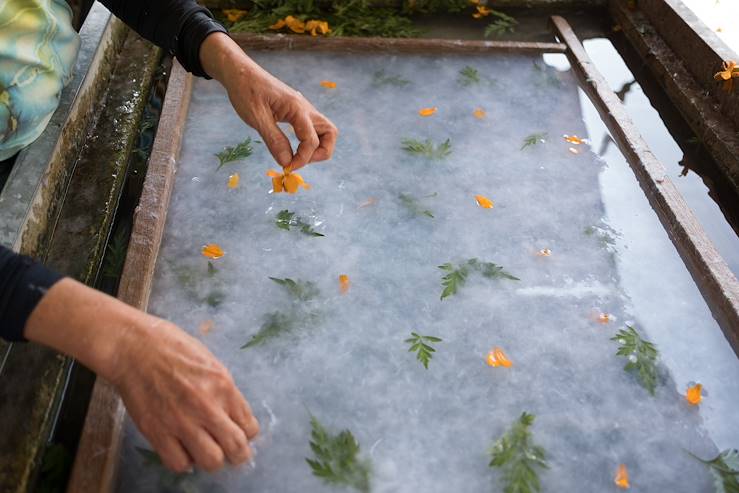
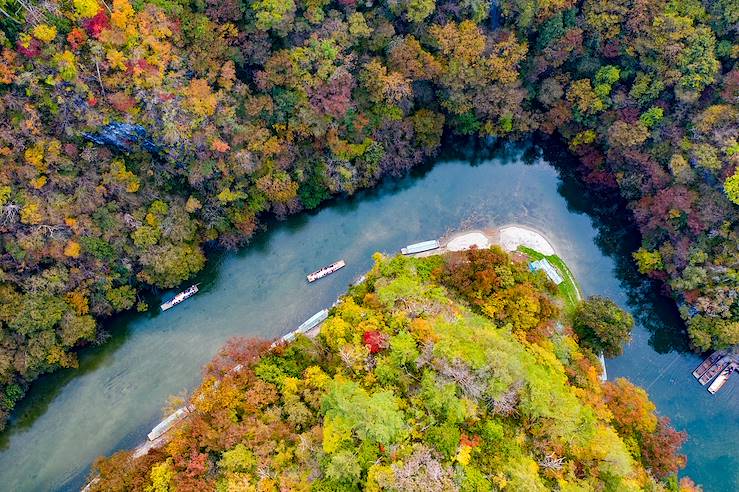
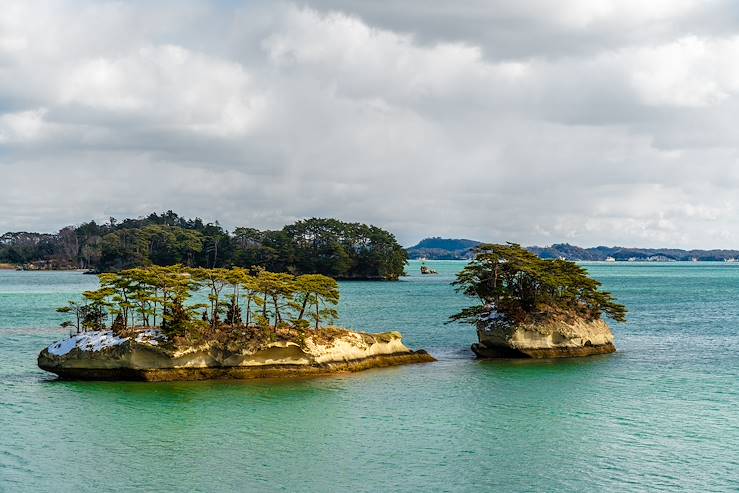
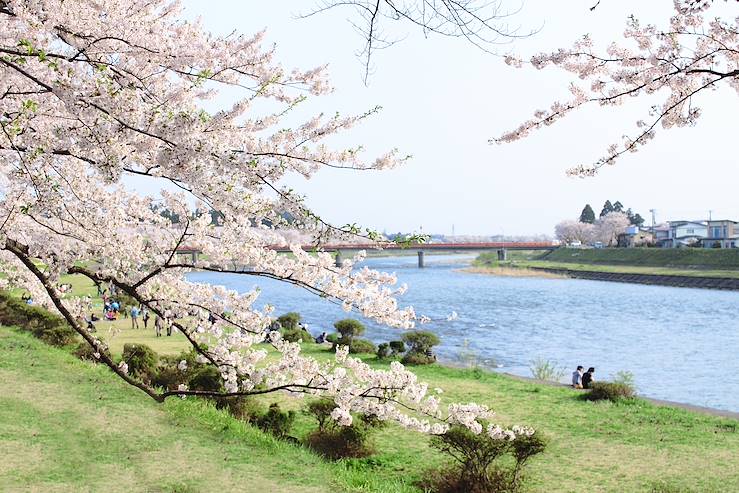
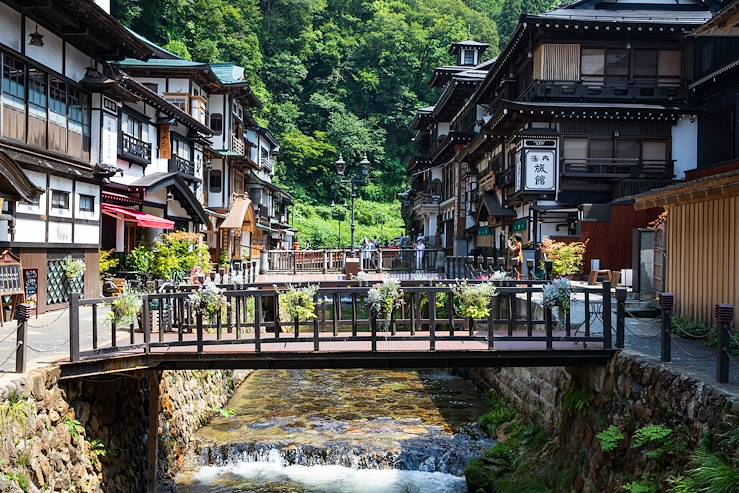
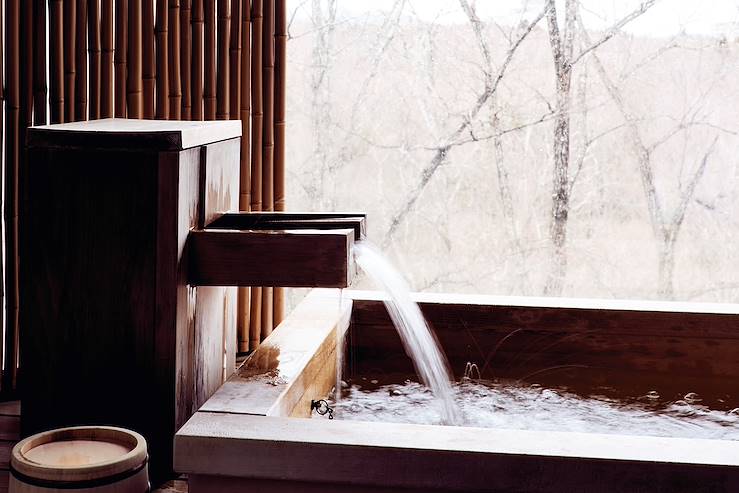
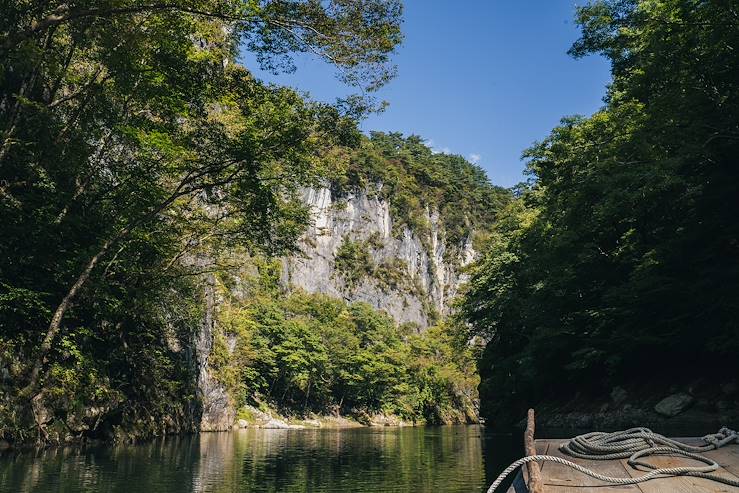
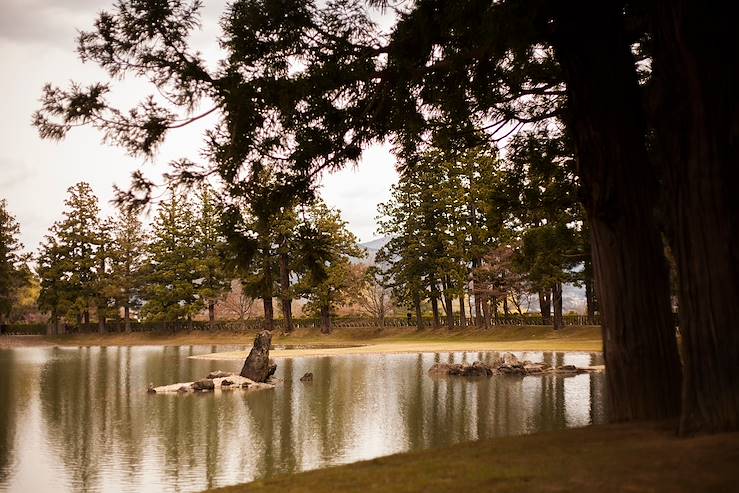
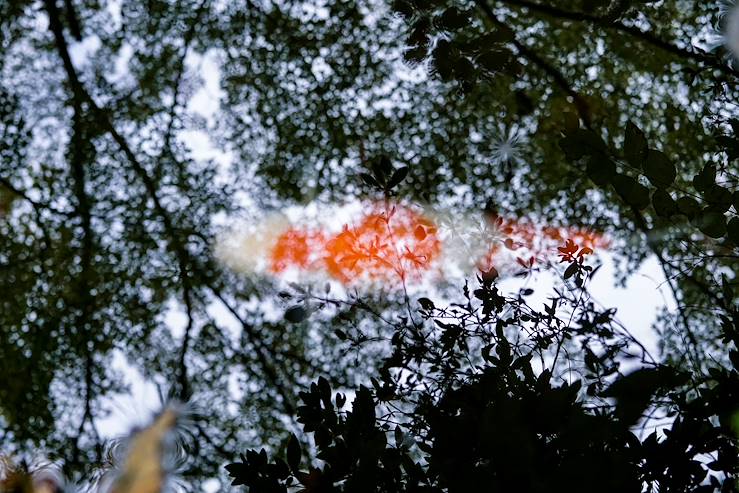
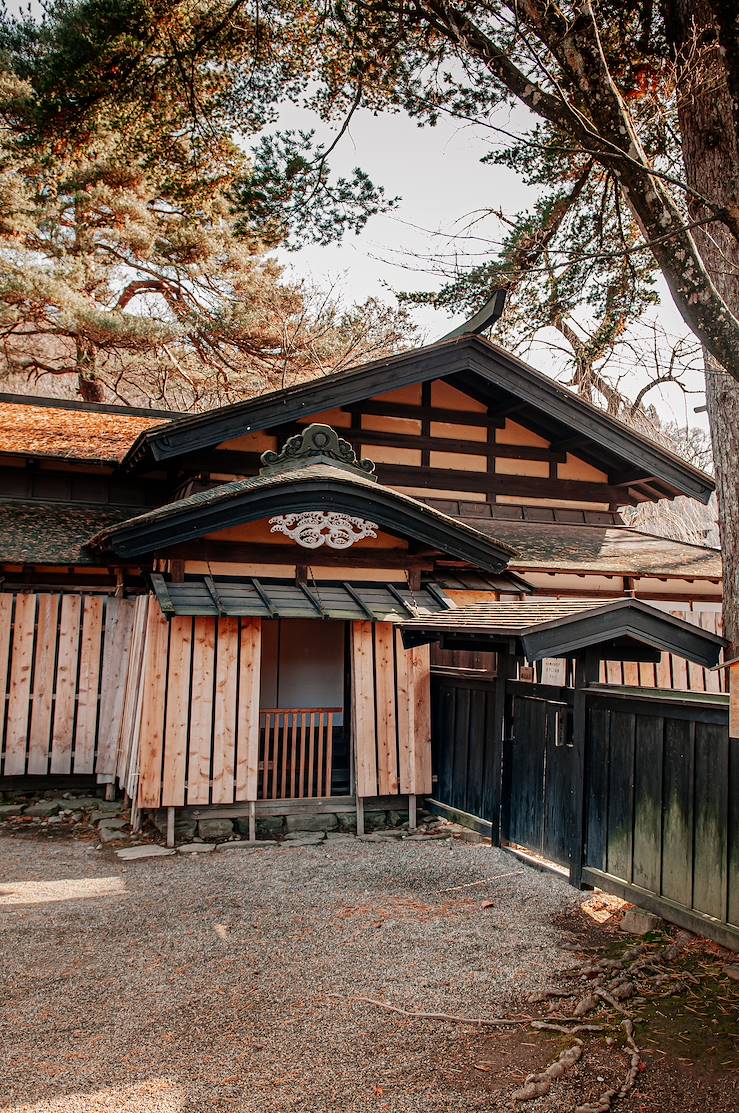
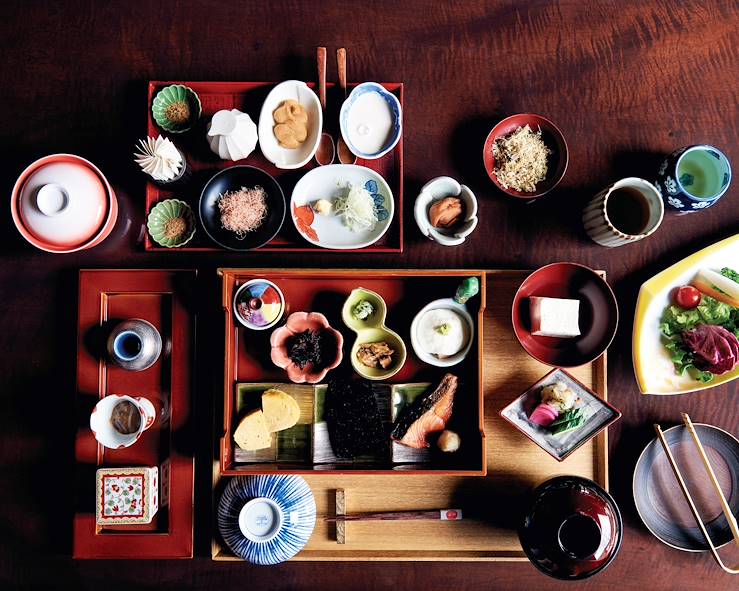
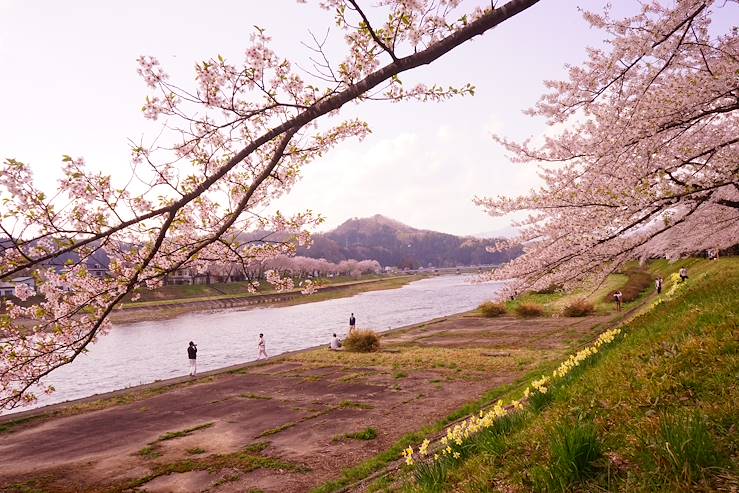
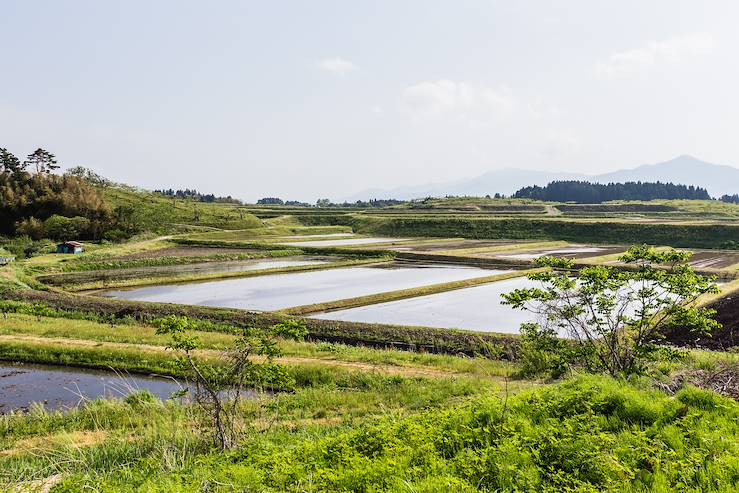
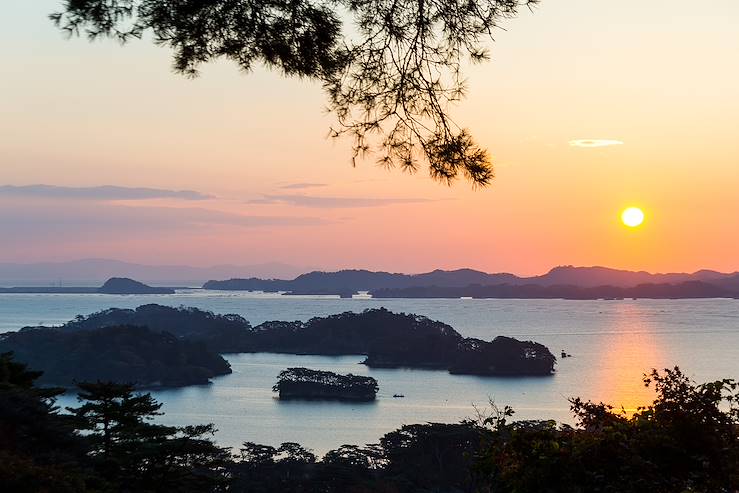
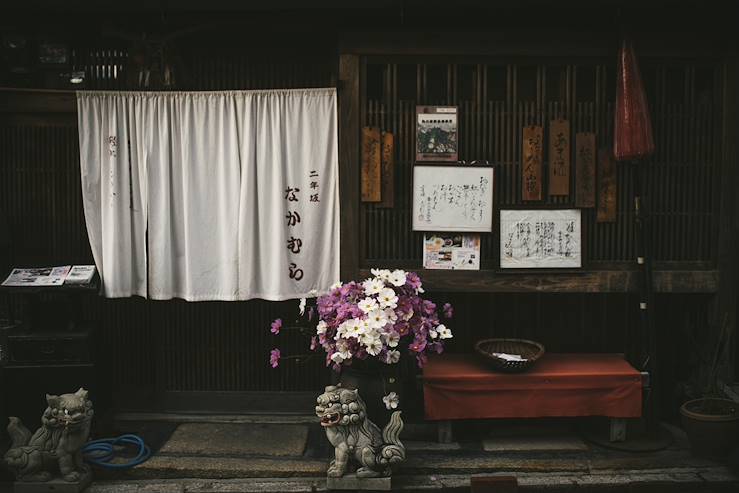
Inspiration for your own tailor-made trip
Aizuwakamatsu - Sendai - Hiraizumi - Lake Towada - Kakunodate - Tsuruoka
100% customisable for you
Your 15-day adventure to Japan begins with an overnight flight to Tokyo. The flight takes around 14 hours, but you’ll hopefully board the plane feeling relaxed and ready for a nap thanks to our fast-track airport services and complimentary lounge access.
When you land at Haneda airport this morning, you’ll take the train into the city using your Japan Rail Pass, which is valid for 14 days. You’ll spend the night in a trendy international hotel with huge windows that offer you a view across the city. After dropping your bags and settling in, it’s time to head out and explore.
Capital of the East and home of urban modernity, this dynamic city is unlike anywhere else, and it’s yours to discover today. If you’re looking to experience the more eccentric parts of Japanese culture, head to Harajuku, where cosplayers and fashion-conscious locals showcase their most fabulous outfits while browsing trendy shops and boutiques. The Akihabara district is famed for its electronics retailers, while the winding alleyways of Shinjuku Golden Gai are home to some 200 pubs and taverns where you can cosy up with a beer or some sake. Museums can be found in swathes in Tokyo, and some of the most original include the Daimyo Clock Museum, the Tokyo Toy Museum and the Tabi Museum. While this city is certainly brimming with modernity, there’s plenty of traditional culture to be found here too: buy a ticket for a kabuki or noh show; see a sumo competition; take a walk in the old district of Yanaka; visit the Meiji Jingu shrine; head to the Fukugawa Edo Museum, which houses a replica of a Tokyo shitamachi neighbourhood from the 1800s. If you have 15 minutes to spare, the Diamond and Flower Ferris Wheel in Odaiba gives you a view across the city from 377ft high. And if you find yourself feeling overwhelmed by the hustle and bustle, head to one of Tokyo’s green spaces such as Rikugi-en or Koishikawa Korakuen Gardens.
Today, you’ll take the train to Koriyama (an hour and 15 minutes) and then a one-hour bus to Aizuwakamatsu. Located in the heart of the valley and surrounded by mountains, Aizuwakamatsu was one of the last samurai strongholds during the Edo period (1603-1868). The city is known for its artisanal lacquerware, sake and finally its castle. Originally built in 1384, the Tsurugajo was once the residence of Aizu’s daimyo (lords), but was partly destroyed during the Boshin War in 1868. Its tenshu ¬– the tallest tower ¬– now houses an observation gallery offering a panoramic view of the city.
You’ll find plenty to fill your time here in Aizu-Wakamatsu: stroll along the green pathways of the Royal Garden before tea in the traditional pavilion; sample some famous local sake in a tavern or brewery; take a look at a reconstructed samurai house at Bukeyashiki; or visit the castle and its park where cherry and maple trees take on vibrant hues during spring and autumn. Afterwards, you’ll spend one night in Aizu in a historic hotel that clings to the mountainside. This evening, enjoy a meal in one of several restaurants before heading to the onsite theatre to see a noh dance-drama performance. While you’re here, make sure to carve out some time for a soak in the hotel’s traditional onsen baths.
This morning you’ll take the train to Sendai, which takes less than two hours. You’ll set down your suitcases here for two nights in a contemporary hotel not far from the station. On arrival, settle into your new surroundings before heading to the hotel restaurant, where you can tuck into some classic Italian dishes such as antipasti, pasta and risotto.
More than 400 years after it was founded, Sendai is still marked by the spirit of its creator, Date Masamune. On top of a small hill surrounded by cedar trees, his memory is honoured in a mausoleum. This feudal capital is today a pleasant city with wide streets lined with trees, and several fascinating attractions including the Sendai Museum and the Osaki Hachiman-gu Shrine. Beyond its walls you can visit Matsushima (pine tree island) which is just 30 minutes from Sendai by train. This scenic bay, with its 260 islets, is considered to be one of the three most beautiful sites in Japan. There are many ways to visit the bay, but perhaps the most picturesque is to walk along the coast dotted with temples. Entsu-in, to name just one, is surrounded by a moss garden and a mystical bamboo forest, and you may well find you have the whole place to yourself.
Today you’ll take a one-hour train to Geibikei, where we’ve planned a cruise in the stunning Geibikei Gorge. You’ll discover this magical natural spot by boat, which is particularly beautiful in autumn. You’ll then head to Hiraizumi by local bus, which takes around 30 minutes. When you arrive, you’ll be greeted by a steaming cup of tea at your traditional ryokan which is built on a natural hot spring. After soaking up the calm in the tranquil garden or enjoying a traditional bath, dinner will be served in your room, prepared by the chef using local produce. Expect dishes such as homemade soba noodles, wagyu beef steak, sushi, sashimi and tempura. Another traditional bath is recommended after dinner.
After a final traditional bath this morning, you’ll tuck into a hearty Japanese breakfast of omelette, natto (fermented soybeans), seasonal fruit, miso soup, grilled fish and rice. You’ll then take a two-hour train to Hachinohe and pick up your rental car for your first drive of the trip: the journey to Lake Towada, which takes around an hour and 45 minutes. You’ll spend two nights here on the banks of the Oirase River in accommodation that is both luxurious and true to its Japanese roots. Sip a drink by the fireplace as you admire the landscape, and don’t miss a soak in the traditional onsen filled with hot spring water from Mount Hakkoda.
You’ll have today to explore your beautiful natural surroundings. The largest crater lake on the island of Honshu was formed following a volcanic explosion. Lake Towada (or Towada-ko) has an area of around 248ft2 and in places is more than 1,066ft deep. Naturally, its shores are a favourite among hikers and nature lovers who come to admire century-old cedars, maples and other plant species that take on vibrant colours in the autumn. On one of the lake’s peninsulas you’ll find Towada Shrine, a Shinto shrine dating back to the Kamakura period. In the rest of the Towada-Hachimantai National Park, you can also discover the mystical beauty of the Oirase Keiryu Gorge.
Today you’ll drive on to Kakunodate, which takes around three hours. You can break up the journey with a stop at Hirosaki, the city of the samurai that’s famous for its park of 2,000 sakura trees that blossom in the spring. Hirosaki Castle is also one of the best preserved in the country, and is one of the few feudal castles dating from the Edo period. When you reach Kakunodate, you’ll spend two nights in an old kura, a traditional warehouse where rice and other perishable goods were once stored. This evening, relax in your authentic surroundings around a steaming cup of tea or sake.
This morning you’ll enjoy a Japanese bento box for breakfast before heading out to explore. Located to the north of the island of Honshu, ‘Little Kyoto’ plunges you into the Japan of another age. Kakunodate was founded in 1620 around its castle (which no longer exists), and experienced great political, economic and cultural prosperity. In the district of Uchimachi, you can visit a few samurai houses which have been inhabited since the Edo period (1603-1868). The old shopping district of Tomachi is steeped in nostalgia, the perfect place to sample some kiritanpo (grilled rice noodles) and shoyu (soy sauce) ice cream. The city is also famous for its 1.2-mile tunnel of cherry trees planted along the Hinokinai River. If you’re visiting in early May, they’re not to be missed.
You’ll drive on to the charming village of Ginzan Onsen today, which takes around two hours and 40 minutes. Founded on an old silver mine, this picturesque spa town is full of traditional wooden inns that line the river. When you arrive, indulge in a thermal soak in the open air (rotenburo) or indoors (kashikiri). If you’re in the mood for a stroll, the town centre is pedestrianised, while Shirogane Park is home to a 72ft waterfall along with the Nobesawa Ginzan cave, a reminder of the city's mining past.
Tonight will be spent in one of the enchanting inns on the riverbank. Here, you’ll have five thermal baths (onsen) to choose from, all fed by a natural hot spring. This evening, enjoy a traditional Japanese meal.
This morning you’ll fuel up with a Japanese breakfast at your accommodation before hitting the road to the west coast and Tsuruoka. The journey takes two hours in total, but along the way you can stop at the Yamadera Temple. Perched in the mountains, this temple is one of the most beautiful in Japan, making it well worth the climb up the 1,000 stone steps it takes to reach it. For meditative purposes, monks embark on this journey regularly, and it’s not difficult to see why. Up here in the peaceful cedar forest, you’ll get a breathtaking view of rolling hills and verdant countryside. It is here that the famous Japanese poet Basho Matsuo wrote one of his most famous haikus. For another perspective, you can head to the Yamadera Basho museum on the opposite hill.
When you reach Tsuruoka, you’ll spend two nights in stylish accommodation inspired by nature and the nearby rice fields. Here, natural light streams through the bay windows and the whole place exudes serenity. Take advantage of the sauna, onsen and the calm of your room before a dinner of fresh, seasonal farm produce.
Famous for its culinary scene and recognised as one of UNESCO’s Creative Cities, Tsuruoka is also known for its Buddhist temple of Zenpoji, which has been a training centre for monks since the beginning of the 20th century. Tsuruoka’s park is built on the old foundations of the castle, and in April it comes alive with the blossoms of over 700 cherry trees, making it a truly enchanting spot.
Tsuruoka enjoys a particularly attractive setting by the Sea of Japan and at the foot of the three sacred mountains of Dewa Sanzan, which are connected by an ancient pilgrimage route. At the shrines of Mount Gassan, Mount Yudono and Mount Haguro, the ascetic religion of Shugendo is still practiced, found only in the Japanese mountains. While you’re in the area, don’t miss a hike up Mount Haguro to the centuries-old pagoda whose five stories hide among the trees. This will take around one-and-a-half to two hours. If you like, you can also spend half a day hiking the trails of Mount Gassan, or discover Mount Yudono by car.
Today you’ll return your rental car and then board the train back to Tokyo. The journey takes just under four hours, and when you arrive you’ll head straight to your original hotel in the city for one final night in Japan.
Head back to the airport today and board your morning flight back to the UK, arriving home that afternoon.
Everything in this itinerary is entirely customisable, down to the smallest details. Here are some more suggestions of what could be included
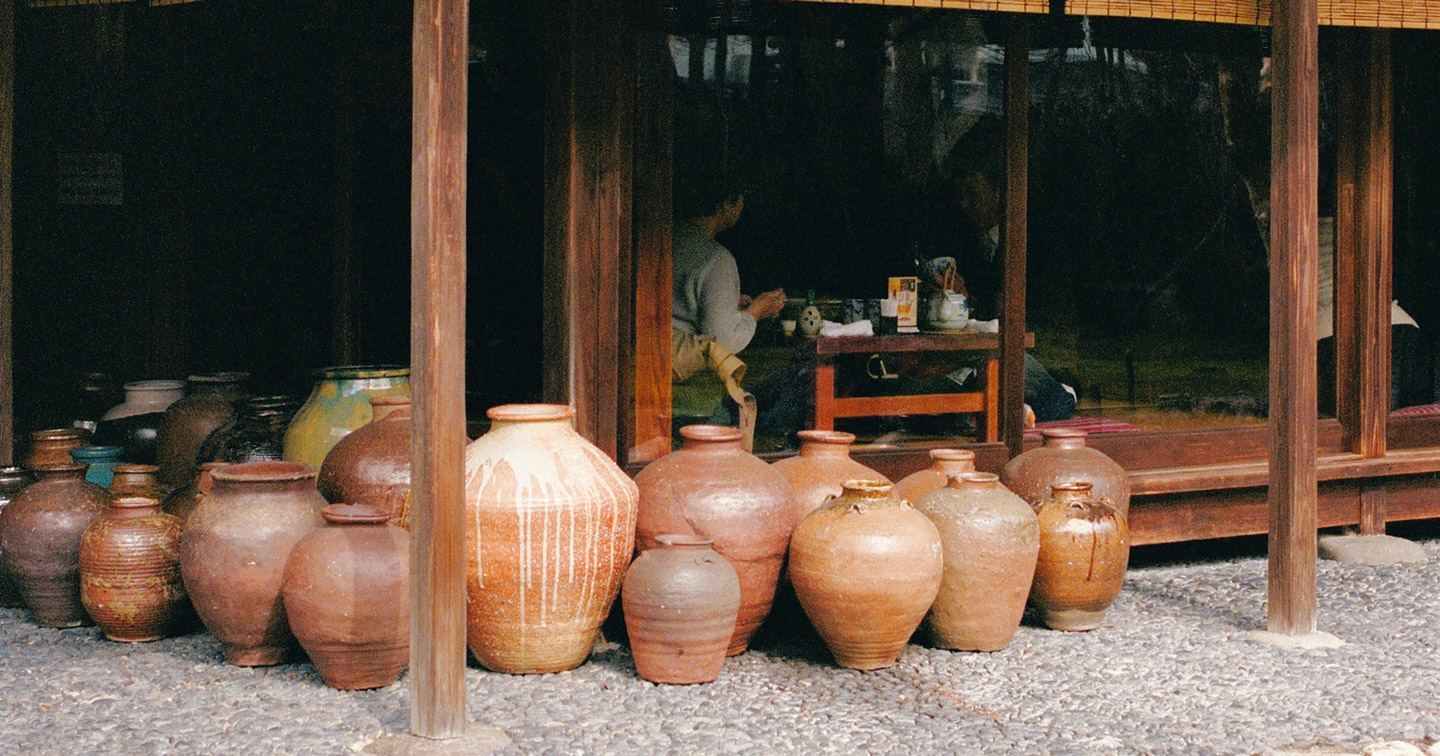
Each of our trips is entirely tailor-made with originality, quality and cultural immersion in mind. Our team of destination specialists will craft itineraries based on your tastes, using their first-hand knowledge and the help of our in-country team of Concierges and guides. All trips are accompanied by a wide range of additional services, including a 24-hour helpline, the Original Travel app, fast-track airport services and much more.
ENQUIRE NOW
Our team of destination experts will get to know you and your unique requirements for your holiday

We work with you to build an ultra-personalised holiday itinerary with your choice of accommodation, experiences and activities

All of our holidays include little extras designed to make a big difference to your trip, from fast-tracking you through airport check-in and security to our network of local Concierges